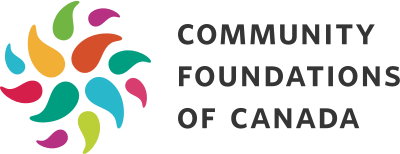This is part of our Healthy Communities Initiative series, showcasing how the $31 million investment from the Government of Canada is supporting communities as they create and adapt public spaces to respond to the new realities of COVID-19.
In Prince Edward Island, over 10,000 people are living with Chronic Obstructive Pulmonary Disease (COPD): a chronic disease that impacts the lungs, causing shortness of breath. As COVID-19 often affects the respiratory system, people with COPD are at a higher risk of serious illness due to COVID-19.
While it cannot be cured, COPD can be treated and managed — and that’s the main goal of the PEI Lung Association, helping locals improve lung health through education, advocacy and research.
“[COPD] is a progressive condition,” explains association coordinator, Julia Hartley. “Some people may have it for 20 years and maybe it won’t lead to that many physical limitations, but as it progresses, you can have more and more physical limitations.”
Hartley joined the PEI Lung Association three years ago. Since 2020, she’s been working on the COPD Virtual Support Group: a monthly online gathering where participants can learn about COPD, get tips on how to manage it, and connect with others going through the same thing.
“Having better self-management really leads to better mental health for our participants,” Hartley says. “Allowing them to feel like they have some control over their condition is huge.”
Learning and Growing
Guided by an advisory group, the COPD Virtual Support Group alternates between health expert-led Q&As, and an interactive session, where participants can share their personal journeys with COPD.
The group has seen a great deal of success, but it wasn’t always smooth sailing. Before moving its programming online, the PEI Lung Association tried to host in-person meetings, but there were a large number of barriers — for example, while the organization is based in Charlottetown, almost half of Islanders live in rural areas, and may not have easy access to transport.

“We really struggled with attendance,” Hartley says. “And then the COVID-19 pandemic definitely made things more challenging for people to interact in person” — especially as those with COPD are a higher risk population.
What’s more, many of those living with COPD are seniors. Before the pandemic, PEI Lung Association would be able to share information with seniors through physical posters and flyers — but with COVID-19 forcing everyone to stay home, options quickly became limited.
$20,000 in Funding
Hartley and her team knew the answer was to go virtual — but they had to do it in an inclusive way that would be accessible to all. Through the Community Foundation of Nova Scotia, they came across the Healthy Communities Initiative (HCI) funding.
The HCI funds innovative digital solutions, allowing people and communities to feel connected, safe and healthy during COVID-19. With $20,000 in HCI funding, distributed to Hartley’s team through the Community Foundation of Nova Scotia, Hartley says that PEI Lung Association was able to offer participants much more than monthly virtual meetings.
Hartley says that this funding “really allowed us to go above and beyond,” including launching their advisory group, as well as a patient-led recruitment committee. “Word of mouth is huge, especially in rural areas,” Hartley says. “Having somebody directly from the program, recruiting somebody else, was very instrumental for us to build our numbers.”
The HCI funding also allowed the association to ramp-up its advertising efforts with local newspapers. Hartley emphasizes that this funding “really allowed us to connect with some vulnerable Islanders in rural communities that would never have heard of our program otherwise,” adding that program membership has since doubled. “It has really led to the sustainability of our program.”
The COPD Virtual Support Group provides a space for community, as well as access to expert health advice during a time when many family doctors are fully booked up. Plus, where a physician can see one person at a time, “we’re offering these sessions to 40, 50 people at a time,” Hartley says.
On top of that, many participants had never used Zoom before coming to the group. “A lot of the new members that wanted to join didn’t have any skills [to] even open emails,” Hartley says.

With funding from HCI, PEI Lung Association is able to call each new participant, to walk them through their online tools. “They can go on to use [online video] to connect with their family in other parts of the country,” Hartley says.
Ripple Effects
One of the Virtual Support Group’s recent sessions was about physical activity. Hartley says that, as COPD can lead to breathlessness, some participants don’t feel confident about exercising.
“We had an individual from a rural area of our province saying, ‘now I’m exercising three days a week, I’m listening to my body more, I know when to take a break’,” Hartley says. “That’s the kind of thing that we like to see: participants feeling more empowered to self-manage their own conditions.”
Another participant watched the Virtual Support Group’s informational COPD videos with his family. “He said [it gave him a] better understanding [of] the condition, and he could better communicate to his family what he could and couldn’t do,” Hartley says.
It’s not just the pandemic that has been isolating those living with COPD. Hartley says that, because COPD is often caused by smoking, there can be a stigma around the disease. “I think this group has also helped participants feel safe,” Hartley says. “It’s really a non-judgmental, peer-to-peer environment.”
Seeing the response to the COPD Virtual Support Group, PEI Lung Association plans to keep it running into the future. “It helps eliminate barriers, such as transportation for those that may not be able to attend an in-person session,” Hartley says, adding that they offer a toll-free number for those who may not have internet access.
“Going forward, we’re going to have a look at all the different programs that we offer, and how we can really eliminate barriers to participation generally,” Hartley says.




